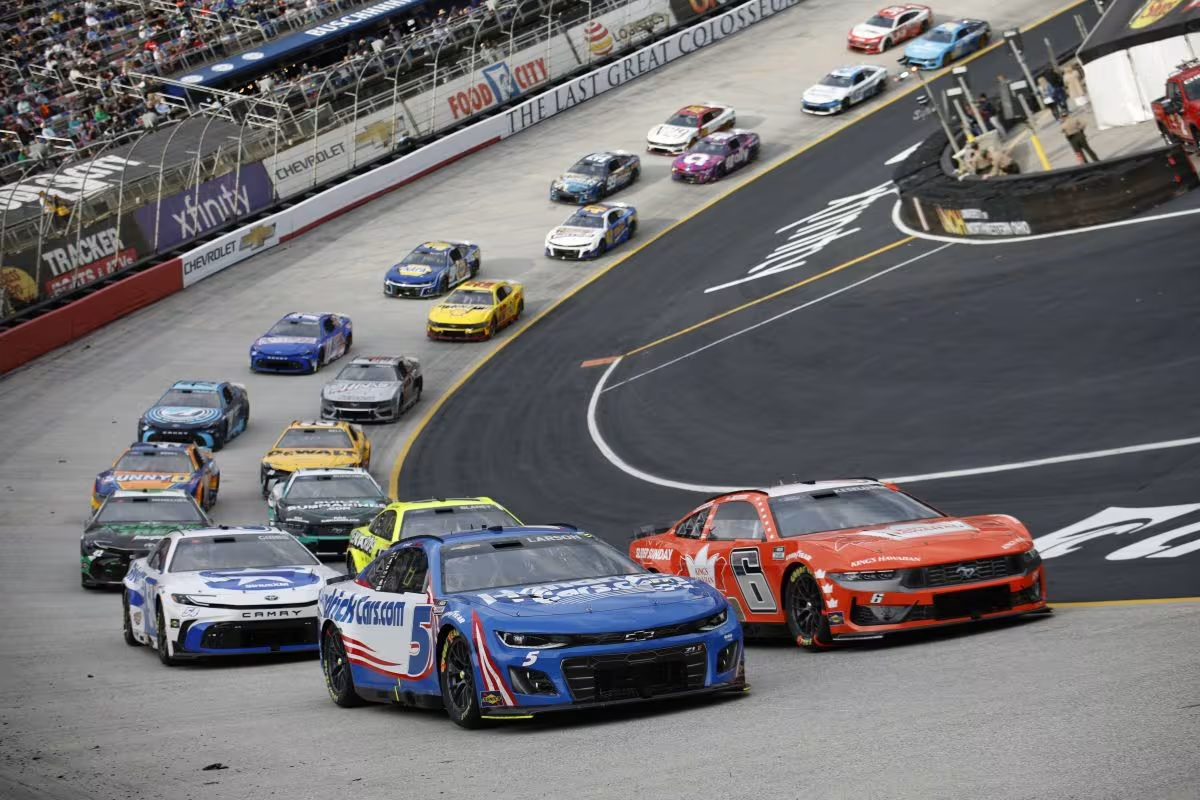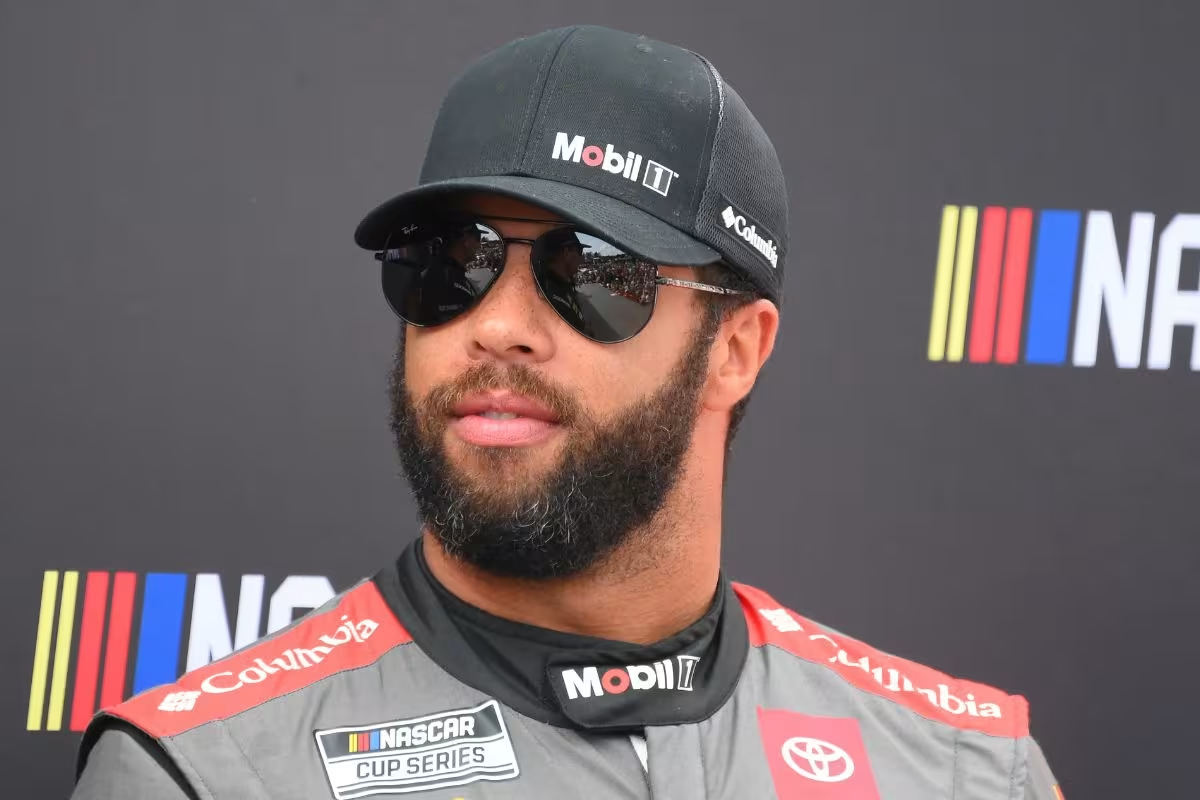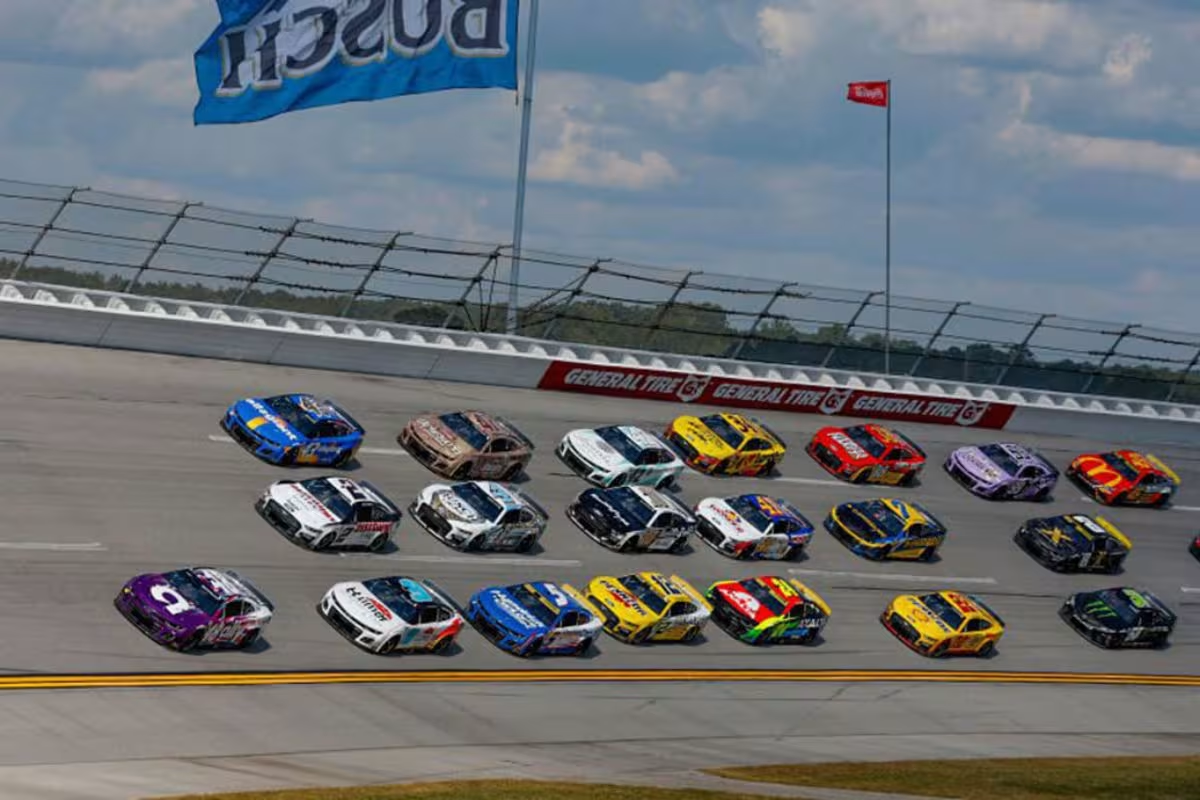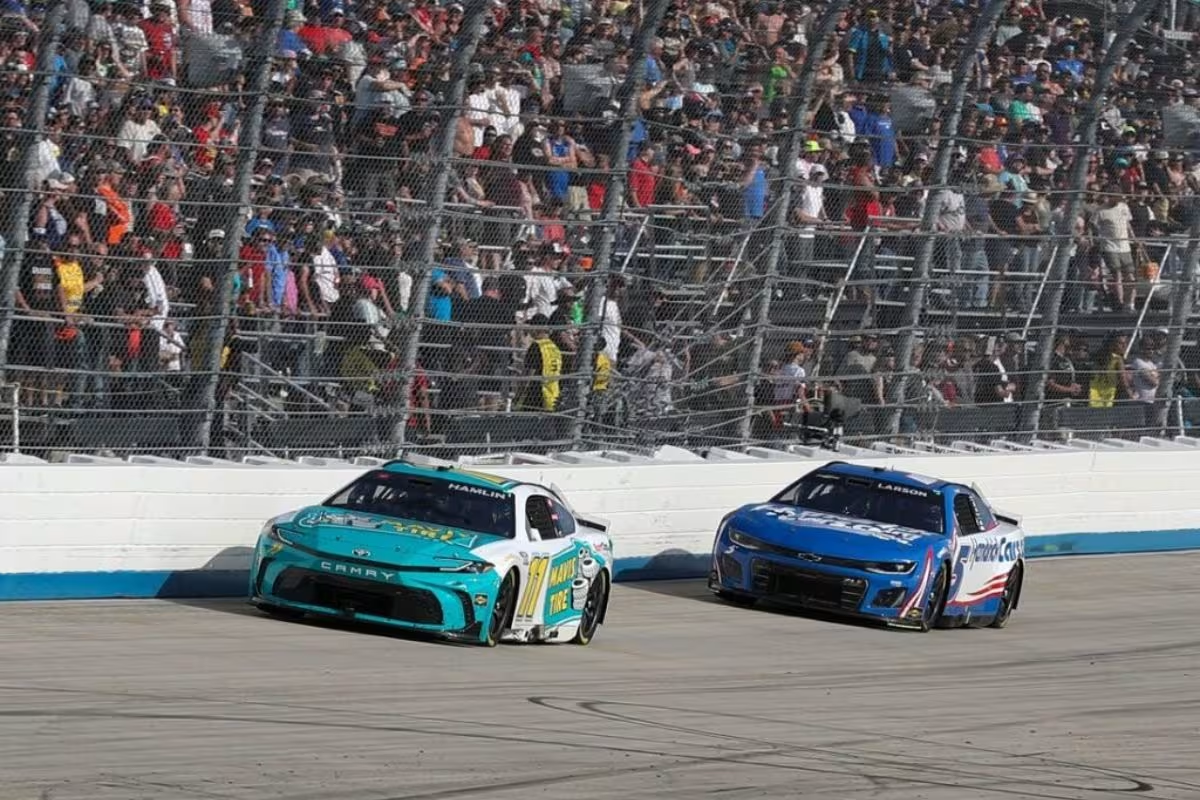Bubba Wallace Puts Family First: Bubba Wallace‘s carefree response to criticisms surrounding NASCAR’s Damaged Vehicle Policy (DVP) reflects a remarkable shift in racing priorities. With the arrival of his newborn son, Becks Hayden, just days ago, Wallace has shifted his focus from the pressures of the track to the joys of fatherhood. As he navigates the new challenges of diaper duty, Wallace embraces this phase of his life with enthusiasm.
Key Highlights
- Bubba Wallace’s recent top-10 finish reflects a relaxed attitude towards DVP criticisms, emphasizing enjoyment over competitive pressures.
- His focus has shifted to family priorities since the birth of his son, impacting his racing perspective.
- Wallace’s practical advice, “Don’t get in the crash,” signifies a more straightforward approach to racing challenges.
- Emotional resilience in the face of DVP debates highlights his personal growth beyond the race track.
- This carefree response indicates a broader trend among drivers prioritizing well-being and family over strict adherence to racing disputes.
Overview of the Incident
In a dramatic turn of events during the 2024 NASCAR season, a remarkable incident unfolded at Talladega, raising questions about the integrity of the Damaged Vehicle Policy (DVP). The race, characterized by a multi-car pileup involving approximately 28 vehicles.
The core of the controversy erupted during a considerable nine-minute track clearance delay, during which NASCAR made a contentious decision to permit Chase Elliott and Chase Briscoe, whose cars were incapacitated, to receive a towback for repairs within the established seven-minute DVP limit.
Traditionally, the DVP stipulates that if a vehicle is rendered immobile due to contact, its race is effectively over unless the driver can maneuver it back to the pits.
However, this deviation from the policy raised eyebrows among competitors and analysts alike, suggesting that NASCAR’s handling of the incident might not align with the principles of fair competition.

Reactions and Frustrations
Reactions to the controversial application of the Damaged Vehicle Policy (DVP) at Talladega have varied considerably among drivers, highlighting a spectrum of frustrations within the NASCAR community.
Bubba Wallace, who navigated the chaos to secure a top-10 finish, exhibited a nonchalant attitude towards the DVP’s implications. In clear contrast, drivers like Joey Logano, Austin Cindric, and Josh Berry expressed their discontent.
“The f***ing No. 42 car is over there doing burnouts, slinging rubber all over the safety workers trying to get going, but if you have four flat tires and have to get towed to pit row, you’re done, right?”-(josh)
Berry’s vocal frustration highlighted a deeper concern regarding the fairness of the DVP. His comparison of the treatment of damaged cars reflects a critical inconsistency that threatens the integrity of competitive racing.
The fallout from the Talladega incident has intensified examination on NASCAR’s decision-making processes, suggesting an urgent need for clarity and consistency in policy enforcement.
As drivers struggle with the consequences of these rules, the divergence in their responses signals a crucial moment in NASCAR’s evolution. While some may adapt to the new priorities, others, like Berry, demand a reevaluation that could recalibrate the competitive landscape.
NASCAR’s Response and Changes
NASCAR’s recent acknowledgment of the discrepancies surrounding the Damaged Vehicle Policy (DVP) marks a significant turning point for the organization, as it grapples with the implications of its enforcement on both competitive integrity and fan engagement.
Implemented in 2017, the DVP has long been a source of contention, particularly as it relates to the evolving landscape of race strategy and vehicle technology. Critics argue that the delay in refining the policy has raised concerns about its fairness.
NASCAR has proactively engaged with teams and crew chiefs to reassess the DVP framework. The decision to adopt the procedures employed at Talladega as the standard for the final five races of the 2024 season signals a commitment to transparency and adaptability.
This move not only addresses the immediate concerns raised by stakeholders but also reflects a broader shift towards prioritizing competitive fairness.
As the organization navigates these changes, it must remain vigilant in balancing the integrity of competition while cultivating an environment that resonates with fans.
Ultimately, these developments underscore a vital moment for NASCAR as it seeks to redefine its policies and guarantee that they serve the best interests of both the teams and the spectators who support them.
Bubba Wallace’s Perspective
When asked about the new and updated Damage Vehicle Policy (DVP), Bubba Wallace had a refreshingly candid response.
“Here we go. Don’t get in the crash. Don’t worry about it. You know? You’re putting the situation in their hands and never really works out in your favor…”-(wallace)
He pointed out that putting the situation in the hands of the rules often doesn’t work out favorably for drivers. While some might find his laid-back attitude towards such a controversial topic surprising, his perspective becomes clearer when he shares his current priorities.
“What’s clear to me is I’ve been taking care of my baby boy and I haven’t paid one bit of attention to what’s going on in this world. So I could care less,”-(wallace)
Wallace’s recent transition into fatherhood has shifted his focus away from racing controversies. He and his wife, Amanda, welcomed their son, Becks Hayden Wallace, just days before the interview on September 29th. This monumental life change understandably puts the DVP debate into perspective.
“[Becks Hayden] is sleeping. I’m still becoming an ace at changing diapers. So I’m enjoying it. It’s been a blast.”-(wallace)
For Wallace, these moments of fatherhood are far more significant than any policy or damaged vehicle, highlighting what truly matters in his life right now.
New DVP Mandates and Future Implications
The recent updates to the Damaged Vehicle Policy (DVP) have sparked a critical examination of NASCAR’s approach to race integrity and safety. These changes, albeit temporary, introduce ambiguity and inconsistency that may impact team tactics and driver safety.
The DVP now stipulates different outcomes based on the nature of vehicle damage. This differentiation raises questions, particularly when the ability to assess damage accurately can vary from crew to crew. The following table outlines the current DVP mandates:
| Damage Condition | DVP Action |
|---|---|
| Repairable damage and flat tires | Towed back, placed under DVP policy |
| Major damage (oil, water leaks) | Towed to garage, out of the race |
| Inflated tires but undriveable | Declared out of the race |
| Minor visible damage | Possible return to the race |
| Inconsistent application of rules | Ongoing confusion among teams |
As crew chiefs express frustration over the lack of communication and consistency, it becomes evident that the DVP’s implementation needs refinement. Drivers and teams alike are left to grapple with the uncertainty surrounding the policy, leading to potential tactical disadvantages.
“Some cars you look at and you think there’s no damage, it’s a little bit of a sticky situation.”-(randall burnett)
“this weekend, that wasn’t the case and there was nothing communicated to me, my team, or anyone within the walls of Joe Gibbs Racing that it was going to change.”-(adam stevens)
“[NASCAR] said we’re gonna look at it in the off-season…Well, that was a very short off-season because it was about 6 days maybe, before we completely did a 180…”-(freddie kraft)
News in Brief: Bubba Wallace Puts Family First
The recent incident involving Bubba Wallace and the subsequent criticism surrounding the DVP (Damage Vehicle Policy) highlights a notable shift in racing priorities within NASCAR. Wallace’s nonchalant response reflects a growing acceptance of evolving norms in the sport, emphasizing the importance of driver safety over traditional competitive tactics. With the introduction of new DVP mandates, the path of NASCAR may pivot towards a more safety-conscious framework, ultimately shaping the future of racing culture and its values.
ALSO READ: Bubba Wallace’s First Week as a Dad: Celebrating New Life Over Lack of Sleep



